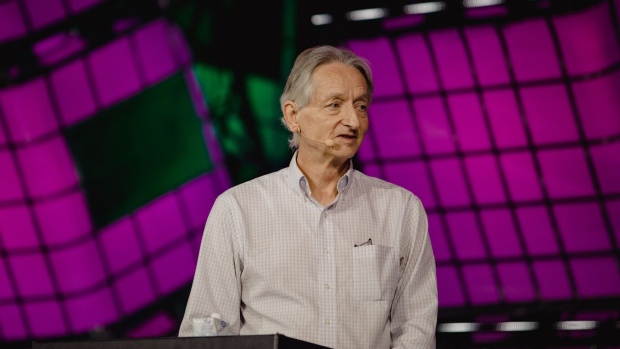Jun 18, 2024
AI Legend Geoffrey Hinton to Advise UK Green Materials Startup
, Bloomberg News

(Bloomberg) -- CuspAI, a UK startup that makes algorithms for designing new materials, raised $30 million in its initial funding round and has recruited artificial intelligence pioneer Geoffrey Hinton to its advisory board.
The company uses generative AI and molecular simulation to work as a “search engine” for materials, CuspAI said in a statement on Tuesday. Hinton, a computer scientist who is often called one of the “godfathers of AI,” has been selective in who he advises since he left Alphabet Inc.’s Google last year.
Cambridge-based CuspAI is one of several startups seeking to combat climate change with AI-designed materials. It will initially focus on producing software that can refine the porous structures used in carbon capture and storage, a market facing setbacks over cost concerns.
While chatbots are the face of the generative AI boom, scientific labs are also tapping the emerging technology. A range of startups and global firms, including Google and Toyota Motor Corp., are developing algorithms to predict how molecules behave as they seek to make it easier to invent things like new medicines or car batteries.
London-based Hoxton Ventures led CuspAI’s seed round, which also included Lightspeed Venture Partners and several other firms.
CuspAI sees opportunity in sectors like green hydrogen, synthetic fuels and semiconductor manufacturing, according to co-founder and Chief Executive Officer Chad Edwards.
The company is developing proprietary databases for its own AI, partially via a partnership with Meta Platforms Inc. Edwards said Meta is also providing computing resources.
Its other co-founder is Max Welling, a Dutch AI scientist who ran a Microsoft Corp. research lab in Amsterdam. Welling said CuspAI’s long-term goal is to create a “highly capable” AI foundation model — like those OpenAI and Google build — tailored for generating new materials.
AI software can dramatically cut costs and time spent developing materials but have yet to prove they can solve the complexities of handling molecules in a lab, according to Alex Ganose, a chemistry lecturer at Imperial College London. “Predicting a material is easy,” he said. “Taking it from prediction to a real, practical application is incredibly challenging.”
Recent research advances that show how AI can generate certain crystals and polymers are evidence of progress in the field, according to Welling. “I have very strong confidence that this will fly,” he said. “Finding the market is always, of course, a journey.”
©2024 Bloomberg L.P.





